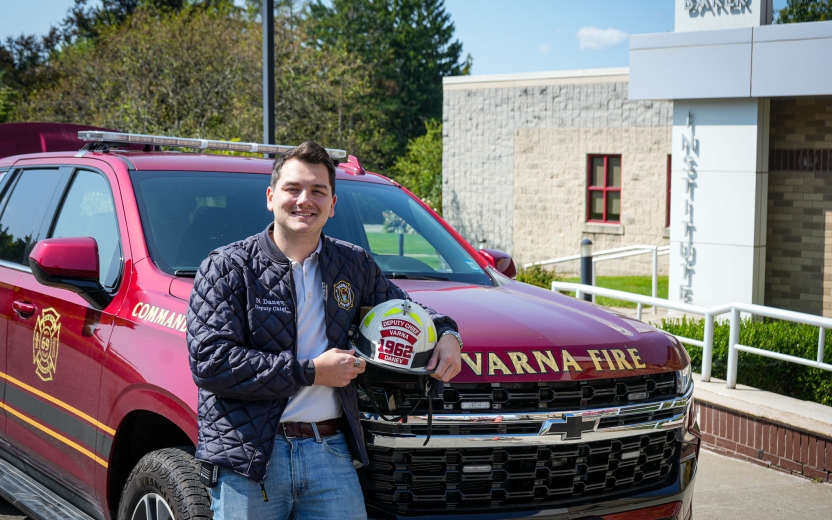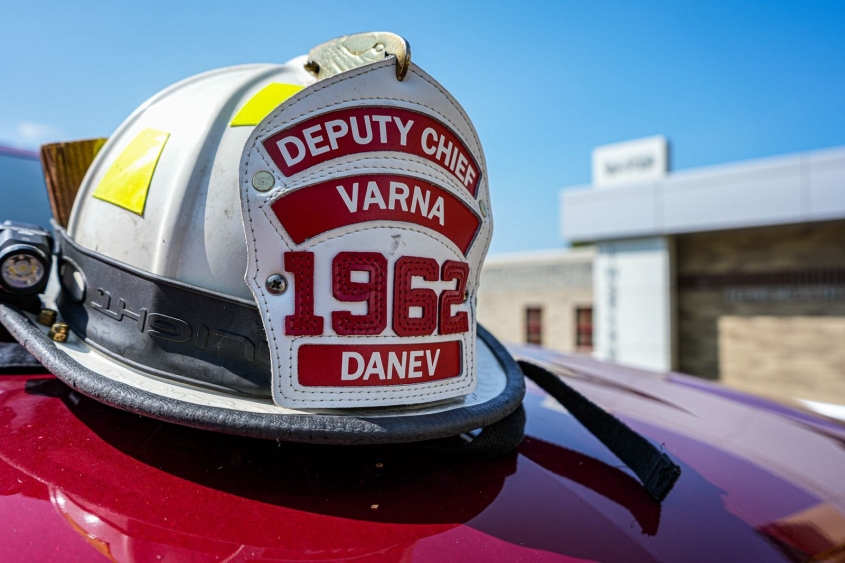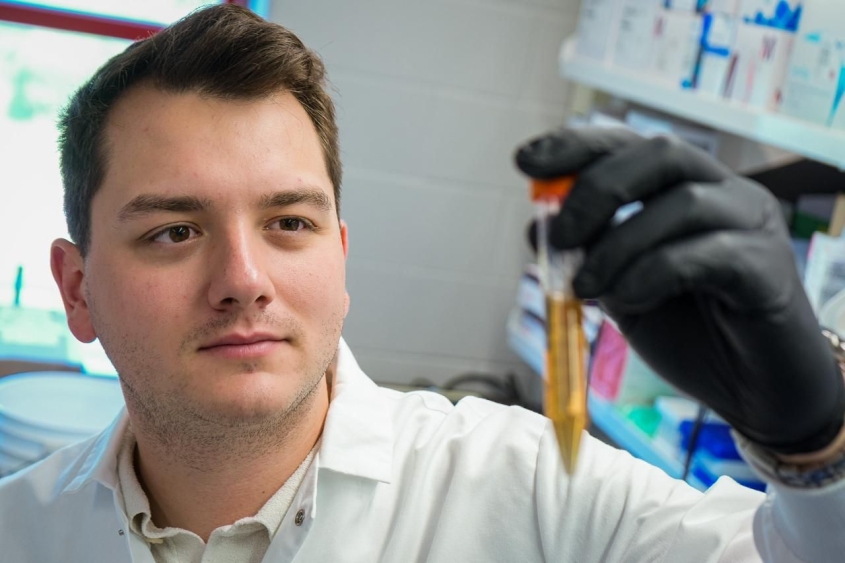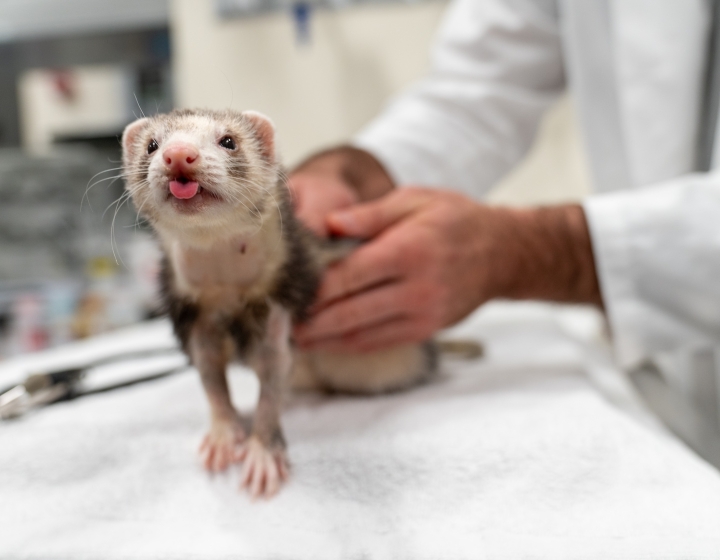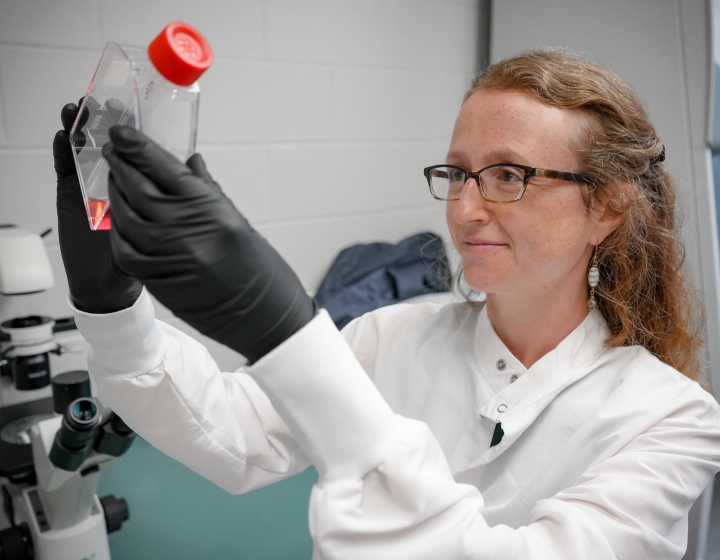Nikola Danev: Finding a place where community meets research
Most people may not think of the importance of community and research, but that is a large focus at the Baker Institute for Animal Health in the College of Veterinary Medicine at Cornell University. “It was difficult to find a community and a sense of belonging until I encountered the Baker Institute,” says Baker trainee Nikola Danev. While completing his Ph.D., Danev not only found belonging, but in turn gave back to the local community by working as a volunteer firefighter with the Varna Volunteer Fire Company.
This week Danev is presenting his Ph.D. thesis on “Bovine adult stem and progenitor cells: from transcriptomics to therapeutic potential,” which poses the use of cows as a therapeutic research model and the use of mammosphere-derived epithelial cells as a potential novel treatment for mastitis. While working on his dissertation, he is also reminiscing, “I fondly think of all the incredible connections and friendships forged through my time here, as well as the collaboration and pooling of resources that allowed me to have fun, learn and feel at ease, while doing challenging research.”
Danev’s journey began in 2016 when he was selected as a John Jay scholar to attend Columbia University in New York City, N.Y. Originally born and raised in Skopje, Macedonia, Danev moved to the United States by himself. While at Columbia, Danev joined the student-run ambulance service and obtained his certification as a New York State emergency medical technician (EMT). His plan was to gain clinical experience to help with his path to medical school, however, through his volunteer work he realized he was more passionate about community service than medicine. In addition, he became more interested in biology and the study of different diseases through his course work. It was the combination of his work as an EMT and change in course interest that led him to pursue a degree in biology, with an emphasis on genetics. These passions ultimately guided him to Cornell University’s Genetics, Genomics and Development Ph.D. program.
In 2020 amidst a global pandemic, Danev moved to Ithaca, N.Y. to start his Ph.D. program. It was difficult for him to find a sense of community and belonging until he joined the lab of Gerlinde Van de Walle, D.V.M., Ph.D., at the Baker Institute for Animal Health. What drew him to join her lab was his interest in pharmaceutical applications in biology and the opportunity to collaborate with industry partners, like Elanco. When joining the Baker Institute he states, “I was welcomed by incredible friends and colleagues.” One of these friends is Mason Jager, D.V.M. ’12, Ph.D. ’22, DACVP, assistant research professor and anatomic pathologist at Cornell University College of Veterinary Medicine, who at the time was a graduate student in the Van de Walle Lab. Jager had just recently joined the Varna Volunteer Fire Company and after finding out about Danev’s EMT training encouraged him to join.
Over three years, both Jager and Danev climbed the ranks of the fire department, now serving as chief and deputy chief, and helped increase the membership 10-fold since 2021.
Danev attributes his success to being in an extremely supportive lab, which has allowed him to pursue his interests leading to a diverse range of opportunities. In 2023, Danev participated in the Cornell Animal Health Hackathon and his team won for a device that could be built into current milking systems and cow transponders that can be used to automatically screen animals for signs of pre-clinical mastitis. This project introduced him to the cross-disciplinary nature of scientific work by interacting with students in MBA, D.V.M., and MPH programs, as well as the Center for Technology Licensing and Business School. Ultimately, it was these additional experiences that led him to pursue an interest in industry. “I was able to see the impact of our scientific research on the economy, on veterinarians, on farmers and on food sustainability,” Danev states. After successful completion of his Ph.D., Danev will be joining the Boston Consulting Group, where he will be able to merge his passions for service and research to make meaningful impact.
When asked about his time at the Baker Institute he said, “[This] has been some of the most fulfilling and memorable years of my life.” Danev hopes that when students come to Cornell, they take advantage of all the incredible opportunities offered by the University, the College and of course, the Baker Institute. “People can pursue many options after completing their Ph.Ds., and I hope that by speaking about my experience I am able to help people explore all of their options for their future careers,” says Danev.
Written by Junelle King, marketing and social media specialist with the Animal Health Centers of the Cornell University College of Veterinary Medicine.



